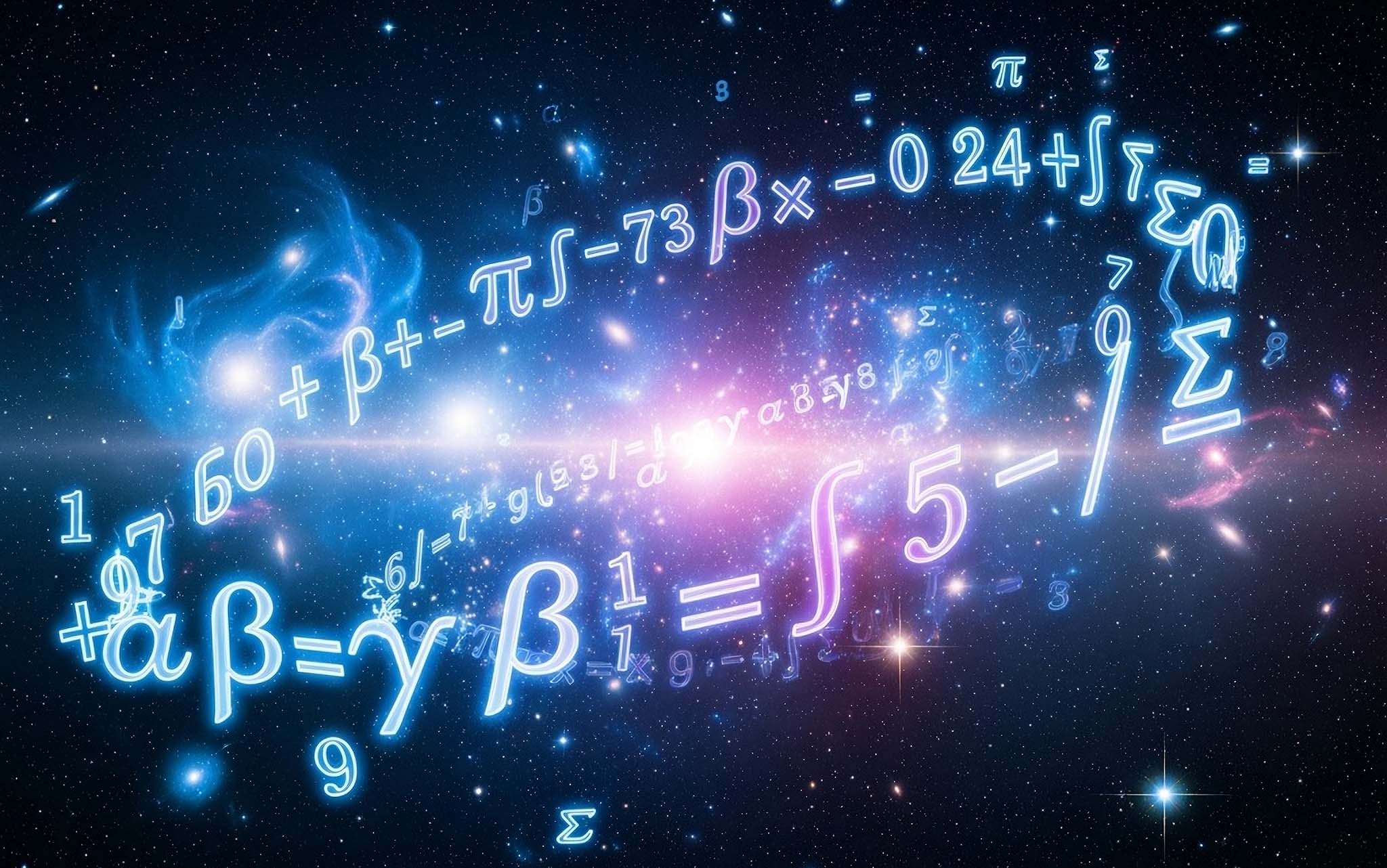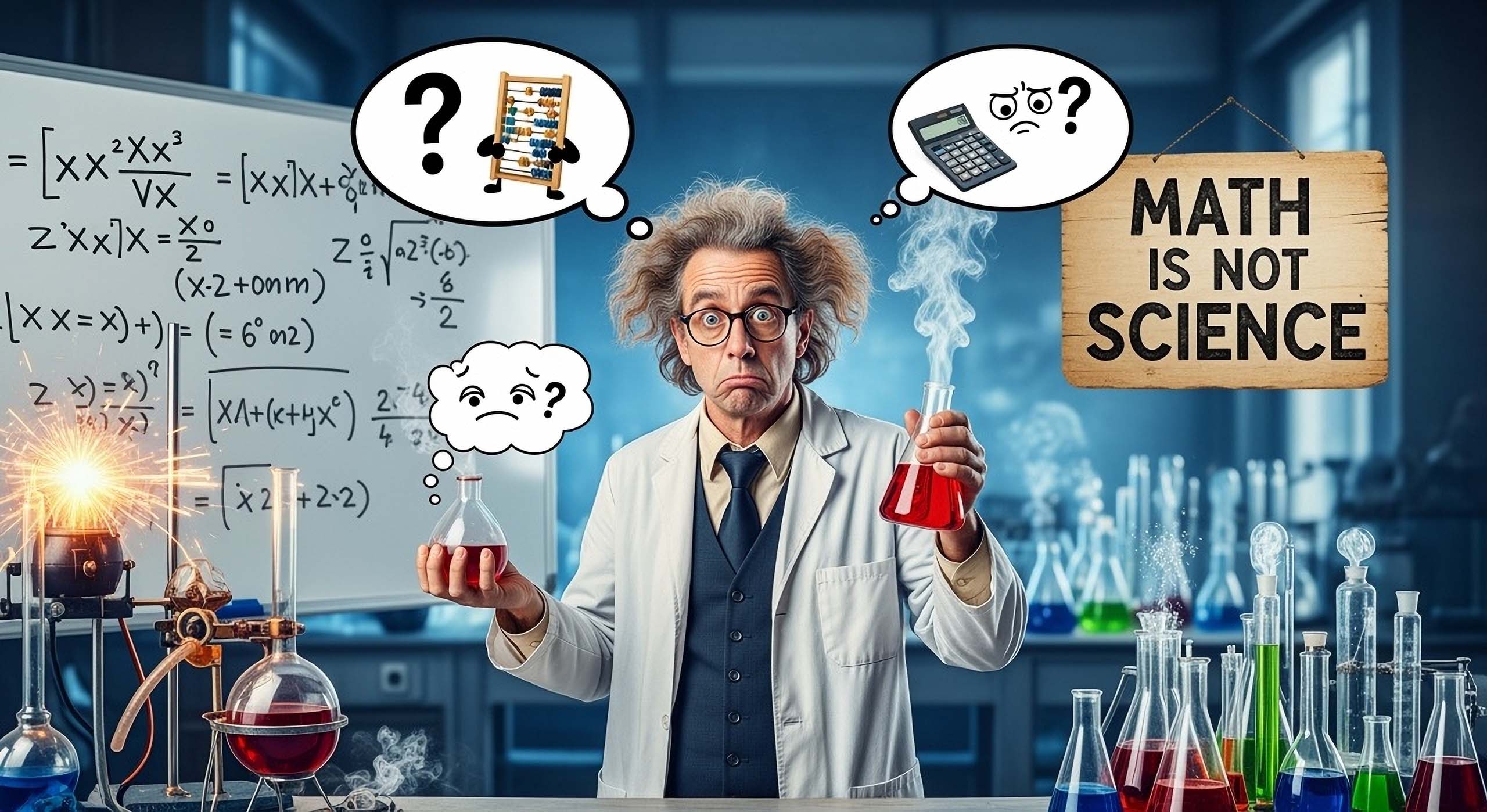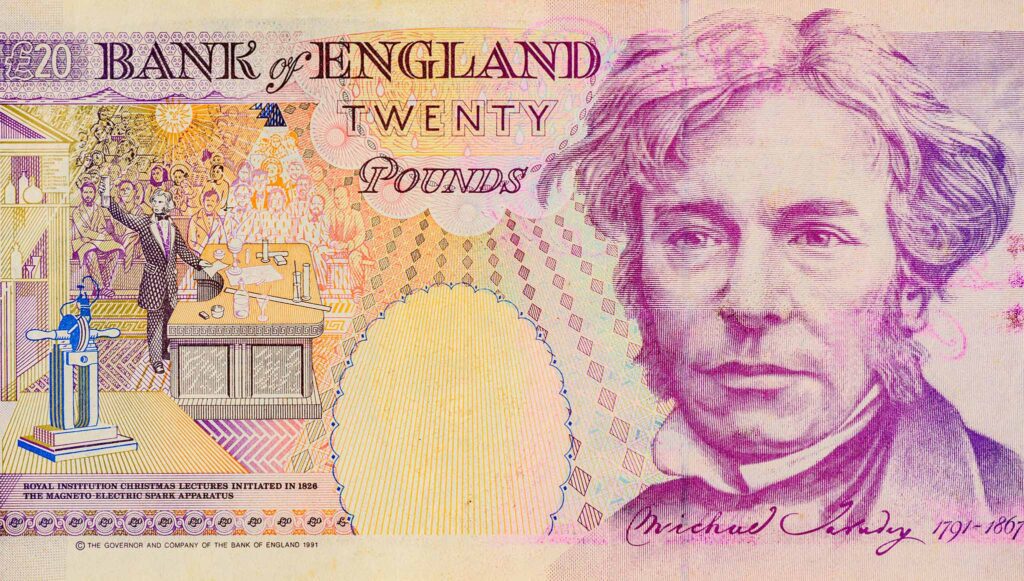If you already know the answer to the question “is physics math or science”, you might find it an awkward question to begin with. And if you don’t know the answer, you might find it a useful or confusing question, or perhaps both. Regardless which group you are in, we’ll present lots of interesting points in this article as we’ll provide much more than just the answer.

But, first things first, here is our brief answer:
Physics is not math, but it uses lots of math. And physics is definitely a science while pure mathematics is not (according to most).
Please forgive yourself if you still feel confused at this point. Let’s dissect the answer in order to clarify.
Physics is not math, it’s an empirical science
Physics is a science which has a very close relation with mathematics. While the same is true for many science subjects, the use of math is particularly prevalent in physics. Why is that? It’s because physics attempts to describe the natural world and math is the “language” it uses to do so.
Scientists use math equations to formalize, quantify, calculate and make predictions in order to test and apply physics theories. However, this doesn’t mean that “physics is math”. Physics is an empirical science, meaning that it involves experiments and observations.[1][2]
Math is extensively used in physics theories that can explain and predict observations. Such theories may start from ideas that physicists initially describe or discuss in words, while the math follows later (the reverse is also possible though). So while physics is very math-heavy, there is certainly more to it than just mathematics. Hence, in case you are reading this as a (prospective) student: be aware that physics is not a math class, but be ready for lots of math nonetheless!
Mathematics is not science, it’s a formal science
Some believe that math itself is also a science, but it depends on who you ask! There are plenty of people who passionately argue that math is not a science at all, because it doesn’t involve the “scientific method”.[3] The latter involves the process of observing the natural or social world, either directly or in a controlled experiment. Scientists then use the results of the observations to potentially falsify scientific theories.[4][5] This is not possible with pure math, and therefore math is not science.
However, we can classify math as one of the “formal sciences”. That’s a sub category of sciences that study abstract structures (formal systems) rather than the natural or social world.[6][7] Hence, it really depends on your definition of “science”. If you consider only empirical sciences to be true science, math is absolutely not a science. However, if you include formal sciences in the overarching definition of “science”, then math is a (formal) science.

Is physics becoming more math than science?
While physics has always been intimately intertwined with mathematics[8][9], this has escalated in more recent history. Some researchers argue that certain physics theories have lost touch with the natural world and are more math than (empirical) science. One obvious example here is string theory.[10][11][12][13] And while string theory is nowadays an umbrella term for a large variety of physics theories, it’s safe to say that most of this work is extremely math-intense.
String theory’s testability problem
We should note that a large amount of complex math is not an issue per se. The problem that many scientists have with string theory, is that it’s not testable for various reasons. There are a huge number of different variants of string theory. This means that there is almost always a variant of the theory that can explain a given observation. Hence, as a whole, string theory risks losing its ability to predict anything that scientists can compare with observations in a meaningful way. And string theorists tend to simply dream up a new variant of the theory as soon as a previous (simpler) version doesn’t fit certain observational data.[14]
Also, many aspects of string theory are only testable at energy levels that are unimaginably higher than what current-day technology can achieve. We must add that it’s historically not unusual for physics theories to be well ahead of technological capabilities to test hem. However, with string theory the gap seems bigger than ever! Furthermore, the mathematical equations of string theory are so complex and demanding that scientists can carry out very few actual calculations. And that’s true even with today’s super computers.
Is string theory just a branch of math or is it science?
These testability problems raise the question whether string theory can at all be classified as scientific. After all, how can a physics theory still be science if we can’t potentially falsify it by comparing predictions with observations? It’s not unreasonable to suggest that a math-heavy theory that we can’t test is just a math theory, and nothing else.
Hence, many researchers argue that string theory is more math than physics, and therefore regard it as pure mathematics instead of science. Perhaps scientists working in string theory indeed get lost in mathematical elegance at the cost of losing relevance to the real world?[15][16]

Not only string theory has problems
As mentioned, we took string theory as an example in this section. However, it’s not the only area of physics that has problems with producing testable predictions. For example, to the best of our knowledge most aspects of loop quantum gravity also come with little hope of being testable against reality.[17] And any theory that is not testable is at risk of becoming more math than actual science.
Not all is lost, but the criticism is valid
We’d like to stress that we are not saying that all physics is more math than science, on the contrary! However, we do feel that much of the criticism on works of physics involving the theories mentioned above is justified. And while there exist also arguments in favor of these theories’ ability to make testable predictions[18][19], we are not holding our breath!
Physics without mathematics, is that still science?
From the math-heavy topic of string theory, we now turn to an approach that’s almost the opposite. Physics without mathematics, is that possible? Many people are interested in physics and not all of them are very well versed in mathematics. This needn’t be a problem if physics is just your hobby or general interest. There are plenty of popular science books that explain physics with little or no math.[20][21][22]
However, if you want to properly understand physics, its tight relationship with math is inescapable. This is true even more so if you want to make scientific contributions in the field of physics yourself. Without mathematics, physics would reduce to speculation or perhaps become a form of natural philosophy. If we remove the math, we can’t quantify predictions and compare them with observational data. Hence, it would no longer be science!
Michael Faraday, the physicist who didn’t do math
Michael Faraday[23], a historically famous physicist, is sometimes mentioned to argue that doing physics without math is possible. Faraday was an exception though, and his work was mostly experimental (empirical) rather than theoretical. It’s true that Faraday knew very little math and still managed to make important contributions to physics. However, he was an exceptionally gifted experimentalist and extraordinary thinker. His ideas about electromagnetism were later formalized by James Clerk Maxwell.[24] And how did Maxwell do that? By using math equations of course!

You want to do physics? Go learn some math!
We should also recognize that physics has advanced a lot since the time of Faraday. In his time it was already difficult to contribute to physics without knowing math, but it’s safe to say that nowadays this is all but impossible. So if you currently don’t know math and would like to do physics, we suggest you start working your way through some relevant entry-level math books.[25][26] You’ll get familiar with topics such as basic algebra, differential calculus, integral calculus, matrices, complex numbers, vectors, tensors, Fourier series, group theory, coordinate systems, statistics, probability, and much more.
Letting go of math for the sake of creativity
By now it’s clear that physics is not just math, but that math plays an absolutely essential role in physics. However, can we temporarily let go of the mathematics in order to generate creative physics ideas? Of course we can! At least, that’s what we’d like to think here at Beating Gravity. We believe letting go of the math can help us with physics research ideas and inspiration. And thus we happily explore topics such as anti-gravity and gravitational amplification without any math.
However, we should always keep in mind that this is not the same as doing science! We can surely think about physics and come up with ideas without involving math. However, there is no substitute for math if we want to formalize, quantify and test those ideas!
